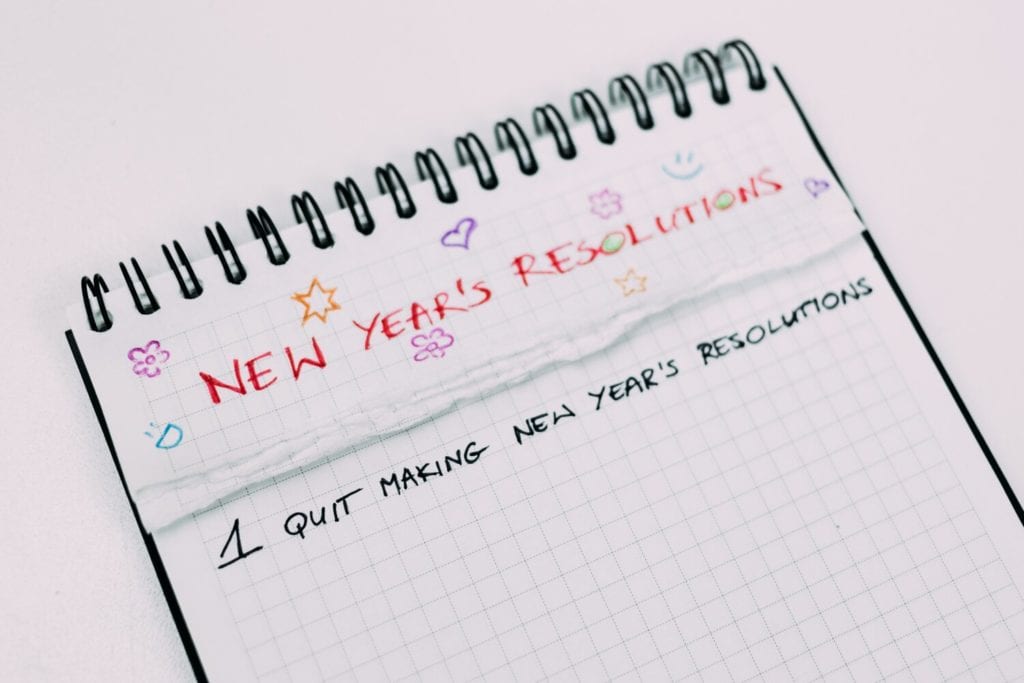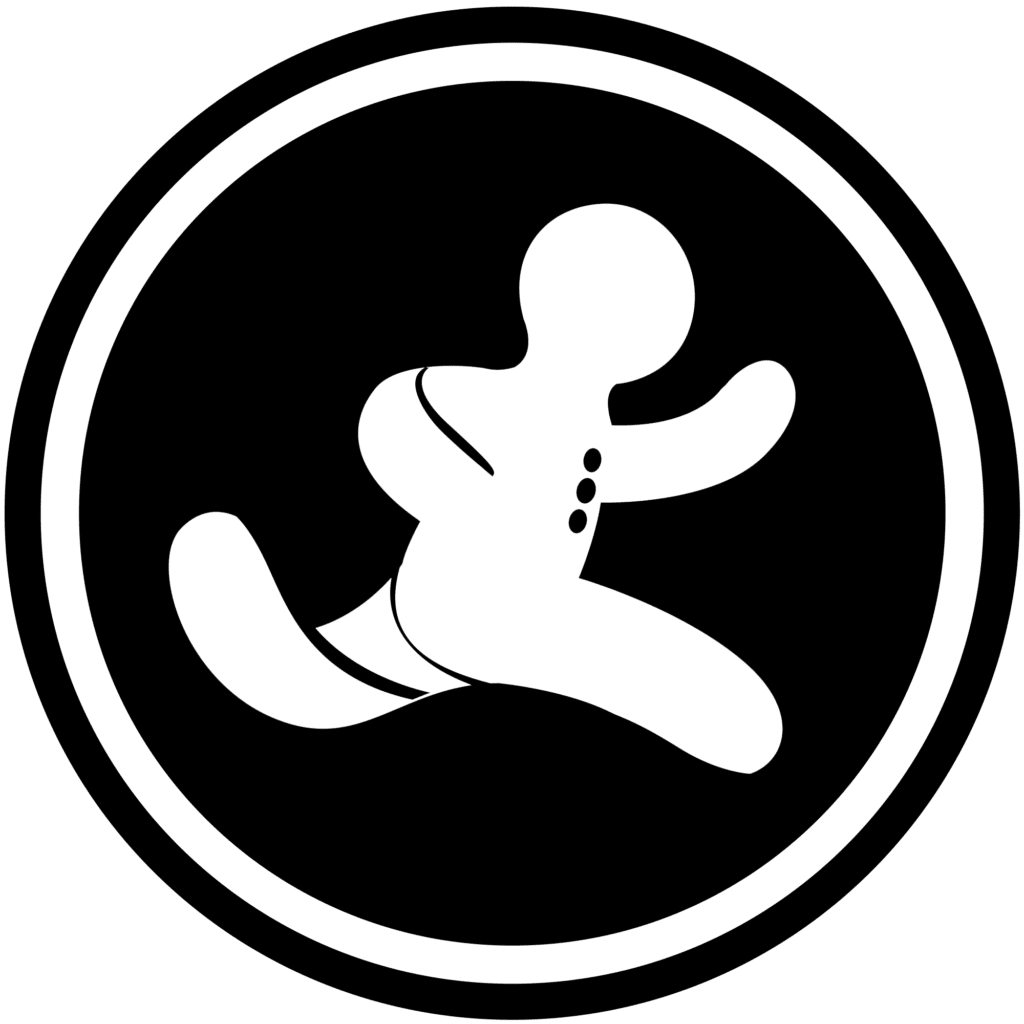
OUR 3-STEP FAIL-PROOF GUIDE TO NEW YEAR’S RESOLUTIONS
We here at Go Be More want you to have an amazing 2020. In fact, we want 2020 to be the year we all Go Be More of who we want to be. And since the new year is almost here, we thought we should give you our 3-step guide to getting the most out of your New Year’s Resolutions:
-
Write down all of your resolutions on a giant piece of paper, something about movie poster size. Use big colored markers to make each resolution stand out. Use bubble letters, make the I’s into rockets and your O’s into targets. Make sure you fill up the page. If you have left over space, add a resolution!
-
Take your giant resolution poster outside. Now light the damn thing on fire, dance around it like you’re part of a wild rumpus, and then as the ashes smolder stare off in the distance soaking in the moment. (Bonus 2A: Instagram selfie!)
-
Take all that time, energy and money you almost wasted and treat yourself. You just averted a disaster. Celebrate!
The truth is, if you set New Year’s Resolutions, you’re setting yourself up for failure.
Here are a few hard facts. 22% of New Year’s Resolutions fail within the first two weeks. (That’s right. Two weeks!) 40% fail before we reach February. 50% fail within three months, 60% within six months, and somewhere between 81-92% fail in the first year. There is actual research on this.
That’s why before you even think about setting a New Year’s Resolution, you need to consider this fact carefully: you are going to fail.
It’s not you, though. You’re just trying to improve your life, to Go Be More. No, it’s the process of making resolutions that’s the problem. And everyone telling you to make them is contributing to the problem. You’re going to fail, but it’s not your fault. It’s not your fault. It’s not your fault. It’s not your fault.
THE “GOOD RESOLUTION” ILLUSION
I was inspired to write this by my friend and former colleague Rusty Gaillard’s post about resolutions on LinkedIn. (Sidenote: he’s a great follow on LinkedIn.) Rusty outlined three problems with resolutions:
-
They rely on “should” energy, but we naturally resist things we “should” do
-
There is conflict between what we “want” and “have”, which cause us to fight against our identity
-
They lack the power of intention: most resolutions are just wishes, hopes or weak desires
I think these are probably all true. I especially love the idea of “should” energy. I’m totally stealing that.
His conclusion (my paraphrasing): “Set powerful resolutions that focus on what matter to you, that you identify with, and that you are determined to achieve.”
In one sense, he’s right. If you are hell-bent on setting New Year’s Resolutions, then they need to meet those three criteria. But I still disagree with that conclusion. The only rational conclusion is this: stop doing things that predictably fail.
Here’s why even Rusty’s good advice will still fail:
Just because something causes a bad result doesn’t mean its opposite will guarantee a good result.
If you set a resolution that doesn’t align to Rusty’s criteria, you’re going to fail. But if you set a resolution using Rusty’s criteria, then you’re still going to fail. The reason is simple: resolutions aren’t something you can think yourself into.
“Resolve” isn’t something you think. It’s something you feel. It’s emotional, physical, tangible.
The moment you try to think up a resolution, you’ve already failed. If only people would stop telling us there’s a trick to doing that better.
ROUTINES OVER RESOLUTIONS
If you’re a bit like me, you’ve set New Year’s resolutions and then come February you just tried to pretend it never happened. Same yearly game. Same yearly results. Just imagine if there was a way to be successful in creating change while feeling successful every day.
Actually, there is. Almost everything we resolve to change is best changed environmentally and incrementally.
Doing less is almost always about improving your environment. And that doesn’t require a resolution. It just requires a tough decision.
-
Snacking too much? Throw the snacks away. Literally, throw them away. Not on January 1. Now. You can’t reach for it if it’s not within reach.
-
Using your phone or Facebook or some app too much? Put the phone in an inconvenient room and stay away from it. Make airplane mode your default. Delete the app that you spend the most time on. Seriously. You can re-install it if you can’t live without it. But challenge yourself to live without it.
Want to do more of something? Don’t make a resolution and try to willpower yourself to achieving it. Focus on creating simple systems. A system has the following criteria:
-
It is productive, it makes you better
-
It is reasonable, you can do it
-
It is enjoyable, a small victory to start your day
-
It focuses on consistency, which is central to long-term success, and
-
It involves learning and positive feedback
The ideal Go Be More system is to find something positive that you already enjoy doing and just do a little more of it. If you want to do something new, don’t focus on doing a “big goal” amount. Focus on figuring out whether it works for you or not. Experiment, evaluate, quit what doesn’t work for you, repeat.
I looked up the most common resolutions and they all make sense. They are the things everybody tells us we “should” be doing. (“Should” energy!) Here are a few systems that will work better:
-
Want to eat healthier? Find a healthy food you like and eat more of it. Experiment to find other healthy foods/recipes you like and add them to your diet. That’s it.
-
Want to get in shape? Find a simple physical activity you enjoy and do more of it, preferably with people you like being around. Sample other activities and see if you enjoy them. If you do, spend some time doing those, too.
-
Want to learn something? Find an activity you enjoy that relates to what you want to learn and do it. Don’t stress if it’s the most effective or efficient. Focus on doing it consistently and enjoying it. You may need to experiment until you find what that activity is.
I heard an interview with a woman who speaks six languages, and her system is fantastic. She buys the full series DVD set of the show Friends in the language she wants to learn. Then she just watches the show. She already knows the plot lines, so the hour or so she spends watching a couple episodes each day allows her to just soak up the new language. And she feels like she’s spending time with old friends (pun intended). She supplements with other study but only when she feels motivated. How great is that?
Finally, let’s talk about money. With money, it’s all about automation:
-
Want to save more? Take an hour and set up a new bank account. Then automate a weekly/bi-weekly/monthly transfer to it for whatever you feel you can afford. My rule of thumb is you can usually manage to cut 10% out of your budget if you care enough. But seriously, 1% is fine. Just set it and forget it.
#JUSTONECHALLENGE: A SYSTEM TO CREATE NEW SYSTEMS

If you want to learn more about creating simple, fun, healthy systems, join us in the #JustOneChallenge. It’s a movement we’ve created that is quite possibly the easiest system you’ve ever attempted. Here’s how it works:
-
You do one push-up a day, for 30 days.
-
That’s it.
Now, you’re probably wondering if we’re serious. (Yes, we are!)
You’re probably wondering what one push-up a day is really going to do for your physique. (Not much!)
You’re probably wondering why we’re doing it. (Because it works!)
The hardest step is the first step. Sometimes, the best way to make sure you take that first step is to make it so ridiculously simple, so easy, and so trivial that it feels sillier not to do it. And to make it even easier and more fun, Jon is doing his live on Instagram every morning. You can sign on to watch his video, where he talks about creating systems, gives some inspirational advice, and then everybody does the push-up together.
After 30 days, you’ll not only have a new routine of being a little more active, you’ll probably have a bunch of other systems, too. Once you see how easy it is, you can’t help but create more of them.
We at Go Be More want 2020 to be the year we all Go Be More Successful. To that end, we look forward to NOT setting any New Year’s Resolutions with you this year!

BRYAN GREEN
Bryan Green is the co-founder, Editor, and COO of Go Be More. His upcoming book, Make the Leap, outlines a mental framework for achieving success in distance running and in life. He currently lives in Japan with his wife and two daughters, where they are not setting New Year’s Resolutions together.


